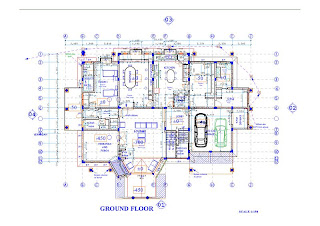Some of my guitar students have expressed to me the frustration of not improving after hours of work on a song, technique or exercise. In some, very few cases, these frustrations are due to what physical trainers call "the hump". Getting over it takes discipline and resolve. What one is doing is maxing out his or her physical capacity to perform.
But I don't think the "getting over the hump" theory is what prevents most people - and most guitarists - from improving.
I think the real challenge - the real hurdle - is a lack of planning - or not knowing how to plan - in order to succeed. Developing a plan isn't always easy - especially for young players - but with a little practice, everyone can improve his skills on guitar.
There are two things I want to touch on here as we really get in to what a "guitar playing improvement plan" can look like:
1. Continue to practice everything you've learned.This is hard to do, but for anyone who has played for more than about a year, you really need about an hour of playing five days a week in order to continue improving. Half of that time ought to be practicing what you already know. The remaining 30 minutes ought to be skills you're developing. Yes, I'm talking 60 minutes a day. That's five hours of guitar a week. (Cut back on Call of Duty, please.)
Here's one suggestion for your 30-minute daily reviews:
Day 1: Pentatonic scales and exercises
Day 2: Bar chords and inversions
Day 3: Major and natural minor scales and exercises
Day 4: Arpeggios (major, minor, augmented, half- and fully-diminished 7th chords)
Day 5: Harmonic and melodic minor scales and exercises
2. In order to pass "the hump", athletes and musicians have to increase their capacity by focusing on their weakest links.For me, this applies really well to rock climbing. It's simple: if I focus only on the types of climbs that I'm good at and like to do, I'll never be a great all-around climber. If I'm a great slab climber and I choose not to work on finger strength on over-hanging routes, I'll never be able to climb over-hanging routes.
On guitar, maybe you hate scales because you suck at alternate picking. Well, you'll never be able to play those quick lead/solo lines well. Want to learn that Jimmy Page solo in "Black Dog"? Not gonna happen without some serious practice on your weaknesses. You know where this is headed...
So how do you know where you're playing is weakest?
Time to eat humble pie, folks. You need to play with people who are better than you. They don't have to be guitarists - just better musicians.
Let this be duly recorded:
If you are in a band and you don't think to yourself at every rehearsal "What a privilege! I get to play with musicians who are better than me every week", then you need to quit and find a new band.
Photo credit: http://commons.wikimedia.org/wiki/File:Housee_BLueprint.jpg

